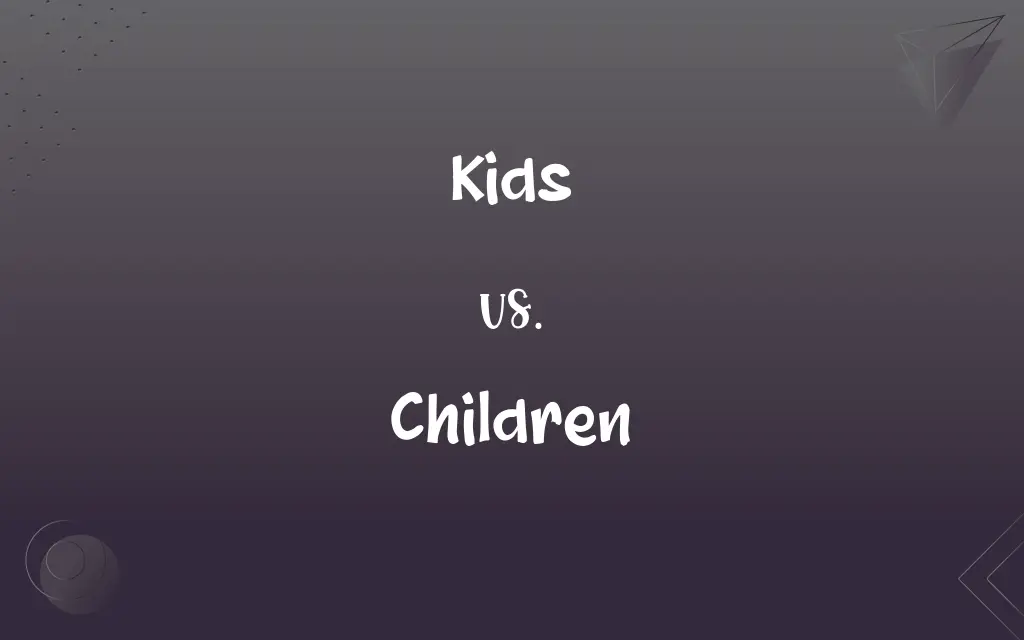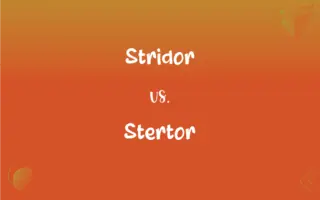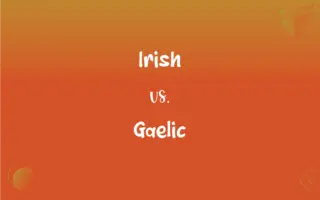Kids vs. Children: What's the Difference?
Edited by Janet White || By Harlon Moss || Updated on October 10, 2023
Kids refers to informal term referring to young people. Children refers to formal term referring to young people.

Key Differences
Kids are often seen as lively and uninhibited individuals. The term "kids" inherently carries a casual, colloquial nuance. Meanwhile, "children" implies a more formal or traditional tone, often used in official contexts and documentation.
In everyday conversation, "kids" is ubiquitously utilized due to its friendly, approachable nature. Conversely, "children" could be perceived as slightly more distant or official, and is frequently selected for written communication, such as academic articles.
"Kids" may be seen as an endearing term, often employed when adults are speaking with familiarity or affection about younger individuals. On the flip side, "children" might be reserved for scenarios necessitating a measure of respect or formality.
In instances where one wants to denote a playful, free-spirited context, "kids" is typically the chosen term. "Children," however, may be used in circumstances that require underscoring the youths’ vulnerability or innocence.
Advertisements and marketing strategies targeting young individuals might prefer "kids" to establish a relatable, fun vibe. In contrast, legal or policy documents will invariably use "children" to maintain a serious, professional tone.
ADVERTISEMENT
Comparison Chart
Formality
Informal
Formal
Usage in Writing
Common in casual writing
Preferred in official documents
Emotional Connotation
Friendly, playful
Neutral, respectful
Context Application
Everyday conversation
Professional or academic contexts
Social Settings
Relaxed, informal settings
Structured, formal settings
ADVERTISEMENT
Kids and Children Definitions
Kids
Friendly Reference.
Those kids are always full of energy.
Children
Formal Term.
The document protects the rights of children.
Kids
General Young Population.
This movie is not suitable for kids.
Children
Vulnerable Context.
We must safeguard our children from harm.
Kids
Young Humans.
The kids were playing in the park.
Children
Young Humans.
Children learn quickly when they are interested.
Kids
Informal Term.
She has three kids to look after.
Children
Neutral Reference.
The children were guided into the museum.
Kids
Playful Context.
The kids chased the ice cream truck down the street.
Children
General Young Population.
This area is designated for children to play safely.
Kids
A young goat.
Children
Plural of child.
Kids
One of the young of certain similar animals.
Children
Plural of child.
Kids
The flesh of a young goat.
Children
Pl. of Child.
FAQs
Is "children" suitable for casual conversations?
Yes, but "kids" is more common in casual talk.
When is it appropriate to use "children"?
Use "children" in formal, professional, or academic contexts.
Which term conveys a friendlier tone?
"Kids" often conveys a friendlier, more relatable tone.
Can "children" be used in marketing towards parents?
Yes, especially if aiming for a tone that implies safety, security, or formality.
Can "children" be used to convey a playful context?
While possible, "kids" is typically used for a more playful and casual context.
Are "kids" and "children" interchangeable in every situation?
No, considering the formality and tone, the usage may differ based on context.
Can "kids" be used in an academic writing context?
It's typically avoided in favor of the more formal "children" in academic writing.
Does the use of "children" imply a certain age range?
It can vary, but "children" generally refers to individuals under the age of 18.
Is "kids" suitable for use in a formal presentation?
Typically, "children" would be the preferred term in a formal presentation context.
What synonyms might replace "kids" in casual speech?
"Youngsters," "tykes," or "little ones" might be used in place of "kids."
Is "kids" formal or informal?
"Kids" is informal.
Is "children" plural or singular?
"Children" is the plural form of "child."
In literature, how might "children" be portrayed differently than "kids"?
"Children" may be portrayed with a bit more formality or innocence compared to "kids."
Can "kids" be used in legal documents?
Generally, "children" is preferred in legal contexts for its formality.
Does "kids" derive from a different language?
Yes, "kid" originally referred to a young goat in Old Norse.
Can "kids" refer to teenagers?
Yes, "kids" can sometimes informally refer to teenagers, depending on context.
Is "children" ever used in a colloquial setting?
Yes, "children" can be used colloquially, but it's often seen as more formal.
How is "kids" used differently in different cultures?
Cultural perceptions of informality may influence how “kids” is received or utilized.
Can "children" denote a familial relationship?
Yes, "children" is often used to specify a familial relationship to parents.
Is it disrespectful to refer to someone's offspring as "kids"?
Generally, no, but sensitivity to parental preference and context is key.
About Author
Written by
Harlon MossHarlon is a seasoned quality moderator and accomplished content writer for Difference Wiki. An alumnus of the prestigious University of California, he earned his degree in Computer Science. Leveraging his academic background, Harlon brings a meticulous and informed perspective to his work, ensuring content accuracy and excellence.
Edited by
Janet WhiteJanet White has been an esteemed writer and blogger for Difference Wiki. Holding a Master's degree in Science and Medical Journalism from the prestigious Boston University, she has consistently demonstrated her expertise and passion for her field. When she's not immersed in her work, Janet relishes her time exercising, delving into a good book, and cherishing moments with friends and family.







































































